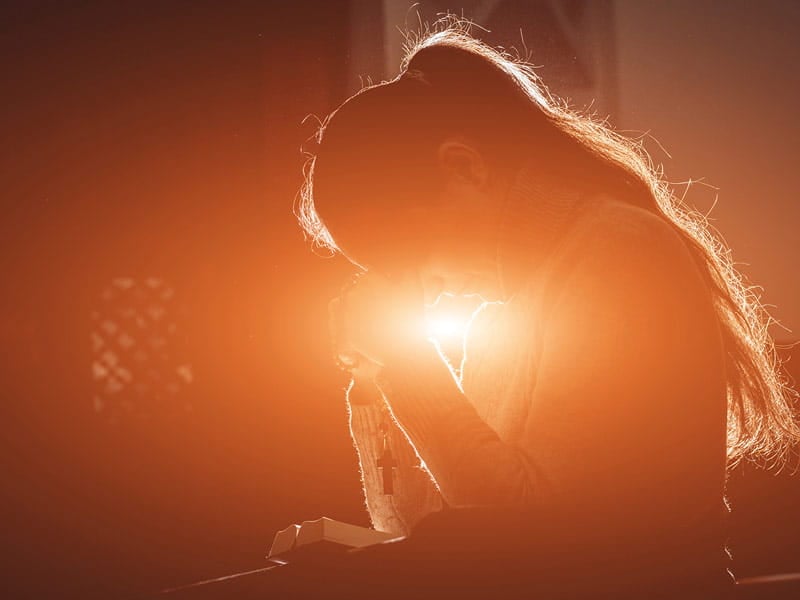The leper stands in the middle of the road, perfectly still. One hand rests on the bell cord around his neck, the other hangs limply at his side. He is dressed in a filthy garment, patched together from bits of sacking and undyed wool, which hangs loosely upon his emaciated body. He regards Francesco and the horse steadily, his head slightly turned and his chin lifted, the better to see them, for his disease has eaten away half his of face and he has only one eye. Francesco does not speak, he cannot move. They face each other on the road, and the sun pours down over them, so that there are no shadows anywhere, nothing to soften or dim the reality of this encounter and nowhere to hide from the necessity of playing it out. The leper's eye drills into Francesco; he can feel it penetrating into his brain. From childhood he has had a horror of lepers, and he has always avoided the lazaretto at the foot of Mount Subasio, where they sometimes congregate in the road, ringing their bells and calling out for alms. The stench rising from their rotting flesh, their phlegmy, guttural voices, pursue him in dreams, from which he wakes sweating and shouting for help. But this is no dream, and there is no point in shouting now, for no one will hear. He glances back down the road and into the neat ranks of olive trees. The world is uncommonly still. He could ride on. There is no reason to stop. As he passes, he can throw down his last coin to the leper. His horse lifts one hoof and paws the dirt. It is time to go on, to go home. As Francesco drops his hand to the reins, his eyes fall upon his own expensive, well-fitting glove, and it dawns on him that this leper is not wearing gloves, which is odd; he and his kind are required to wear them when they leave their hospitals, just as they are required to wear and ring their bells to warn the unwary traveler of their approach. Again Francesco looks down upon the solitary figure of the leper, who has not moved a muscle. His hand is still wrapped around the cord of the bell, his head arrested at an angle. He is like a weatherbeaten statue, and Francesco has the sense the he has been standing there, in his path, forever.
The leper watches him with interest. His blasted face is bathed in sunlight; the black hole that was his eye has a steely sheen, and a few moist drops on his lips glitter like precious stones. He moves at last, releasing his bell cord and extending his hand slowly, palm up, before him.
This supplicating gesture releases Francesco, for it dictates the countergesture, which he realizes he longs to make. Without hesitation, he strides across the distance separating him from his obligation, smiling all the while as if stepping out to greet an old and dear friend. He opens his purse, extracts the thin piece of silver inside it, and closes it up again. He is closer now than he has ever been to one of those unfortunate beings, and the old familiar reaction of disgust and nausea rises up, nearly choking him, but he battles it down. He can hear the rasp of the leper's diseased, difficult breath, rattling and wet. The war between Francesco's will and his reluctance overmasters him; he misses a step, recovers, then drops to one knee before the outstretched hand, which is hardly recognizable as a hand but is rather a lumpish, misshapen thing, the fingers so swollen and calloused that they are hardly differentiated, the flesh as hard as an animal's rough paw. Carefully, Francesco places his coin in the open palm, where it glitters, hot and white.

